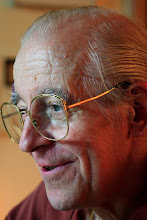춘풍 니불 아래 서리서리 넣었다가
어론님 오신 날 밤이어든 굽이굽이 펴리라.
Che possa catturare l’essenza di questa profonda notte di mezzoinverno
Ed avvolgerla nel tenue tepore di una coperta sotto la luna di primavera,
E poi appassionatamente svolgerla la notte che il mio amato ritornera’.”
Tutti i coreani conoscono questo sijo (breve composizione poetica su tre versi) di Hwang Chin-i (黃眞伊, 황진이, c.1520-c.1560). Hwang fu una famosa kisaeng (妓生, 기생, accompagnatrice), nota nella professione col pseudonimo di Myongwol (明月, 명월, Luna Brillante) che inganno’ monaci Buddisti dalle virtu’ eccelse ed amo’ il filosofo confuciano So Kyong-dok (徐敬德, 서경덕, 1489-1546) occupando un largo spazio nel mondo letterario della dinastia Choson (大朝鮮國, 대조선국, 1392-1910).
Xue Tao (薛涛, 768-831) fu una rinomata poetessa ed accompagnatrice ai tempi della dinastia cinese Tang (唐朝, 618-907) considerata di possedere un talento paragonabile a quello della Hwang. Il suo nome forse non e’ molto noto qua in Corea ma potrebbe essere una sopresa per i coreani sapere che i versi della loro nota canzone Tongsimcho (동심초) sono stati scritti proprio dalla Xue:
“I petali del fiore cadono al soffio del vento
E non sappiamo se ci incontreremo ancora.”
La canzone e specialmente cara ai quarantenni di oggi.
Il poetessa coreana Kim Ok (金憶, 김억), l’insegnate del poeta romantico Kim So-wol (金素月, 김소월, 1902-1934), tradusse parzialmente in coreano il poema della Tao. La forza lirica e la nostalgica melodia serviva ad addolcire l’animo in pena dei coreani nel periodo della post-liberazione del paese dall’occupazione giapponese.
“Mentre due cuori non possono essere uniti
Io cerco solamente di legare fili d’erba."
Il poema originale descrive l’impazienza di essere con l’amato. Tao pensava di sposare un’altro poeta del suo tempo, Yuan Zhen (元稹, 779-831), 10 anni piu’ giovane di lei, ma la relazione fra i due non duro’ a lungo. Non e’ documentato se Tao avesse scritto il suo poema perche’ sentiva la mancanza di Zhen, ma potrebbe essere possibile. Documenti del tempo mostrano che altri famosi poeti come Bai Juyi (白居易, 772–846) e Liu Yuxi (劉禹錫, 772–842) e parecchi ufficiali governativi visitavano regolarmente Sichuan (四川) dove la Tao viveva, erano suoi ospiti e scambiavano con lei scritti poetici. La Tao era anche famosa per produrre da se stessa la carta leggermente colorata in rosso dove scriveva i suoi versi.

Il ritratto della pittrice e calligrafa coreana Sin Saimdang (申師任堂, 신사임당, 1504–1551) riprodotto nelle nuove banconmote da 50 000 won ha generato critiche spesso feroci. Nessuno sa con certezza che aspetto avesse la madre di Yi I (李珥, 이이, 1536-1584), uno dei piu’ grandi filosofi confuciani della dinastia Choson. Non esiste nemmeno una descrizione del suo aspetto fisico e considerando che il ritratto riprodotto sulla banconota e’ diverso da quello ufficiale riconosciuto dallo stato, alcuni critici sostengono che la donna della banconota assomiglia ad una kisaeng.
 Sin Saimdang
Sin Saimdang
Chin-i e la Tao certamente stanno pensando che il giudizio sia ingiusto. Un dipinto deve essere giudicato per quello che e’: un dipinto. Non ha senso giudicare una persona considerando solo il suo livello sociale o la sua professione. Duemila e duecento anni fa, il capo della prima rivolta contro la dinastia cinese Qin (秦朝, 221-206 BC), Chen Sheng (陳勝, ??-209 or 208 BC) diceva: “Non c’e’ nulla come una ben definita eredita’ per diventare un nobile.”
Giorgio Olivotto
Seoul, Korea
30 maggio 2010


